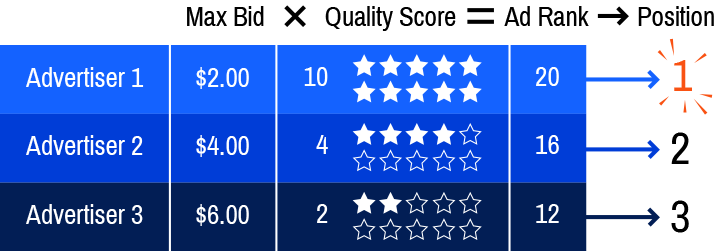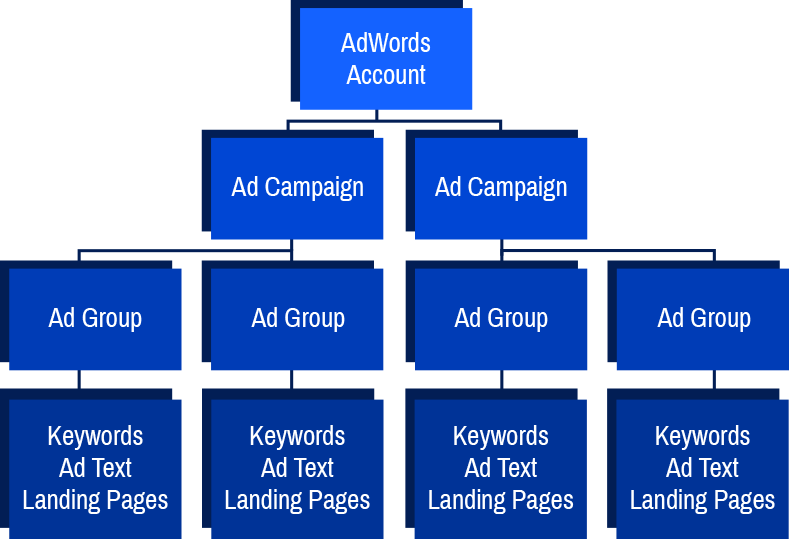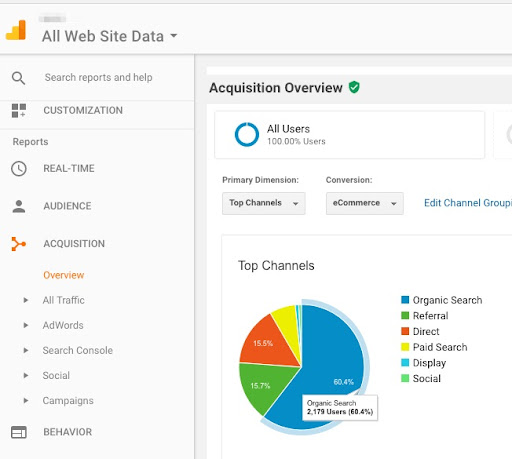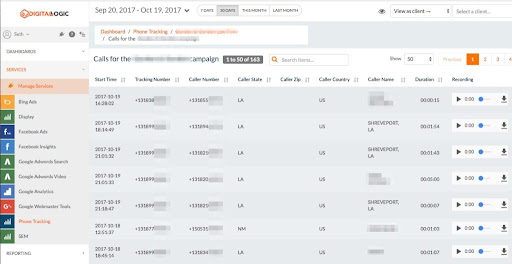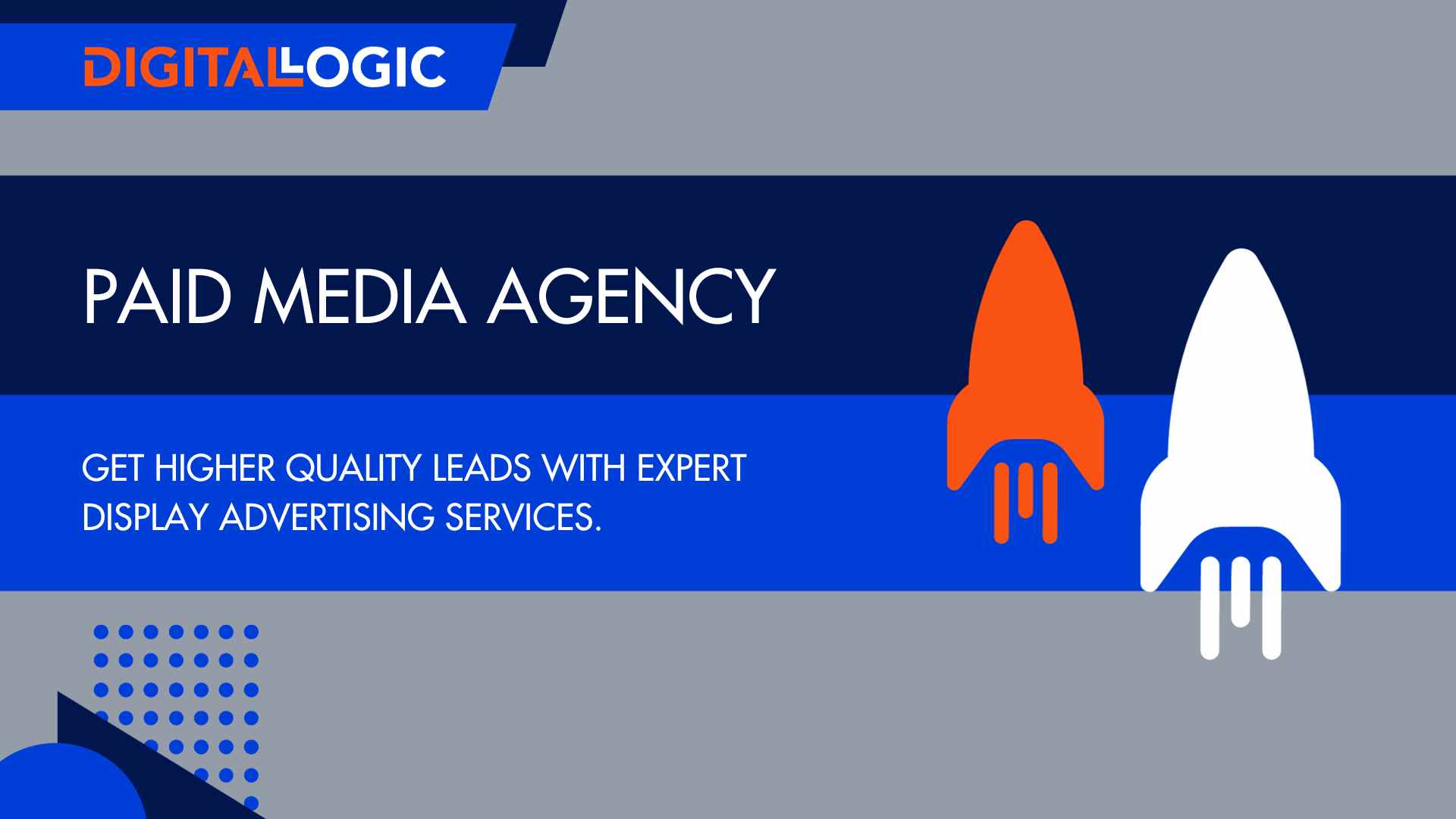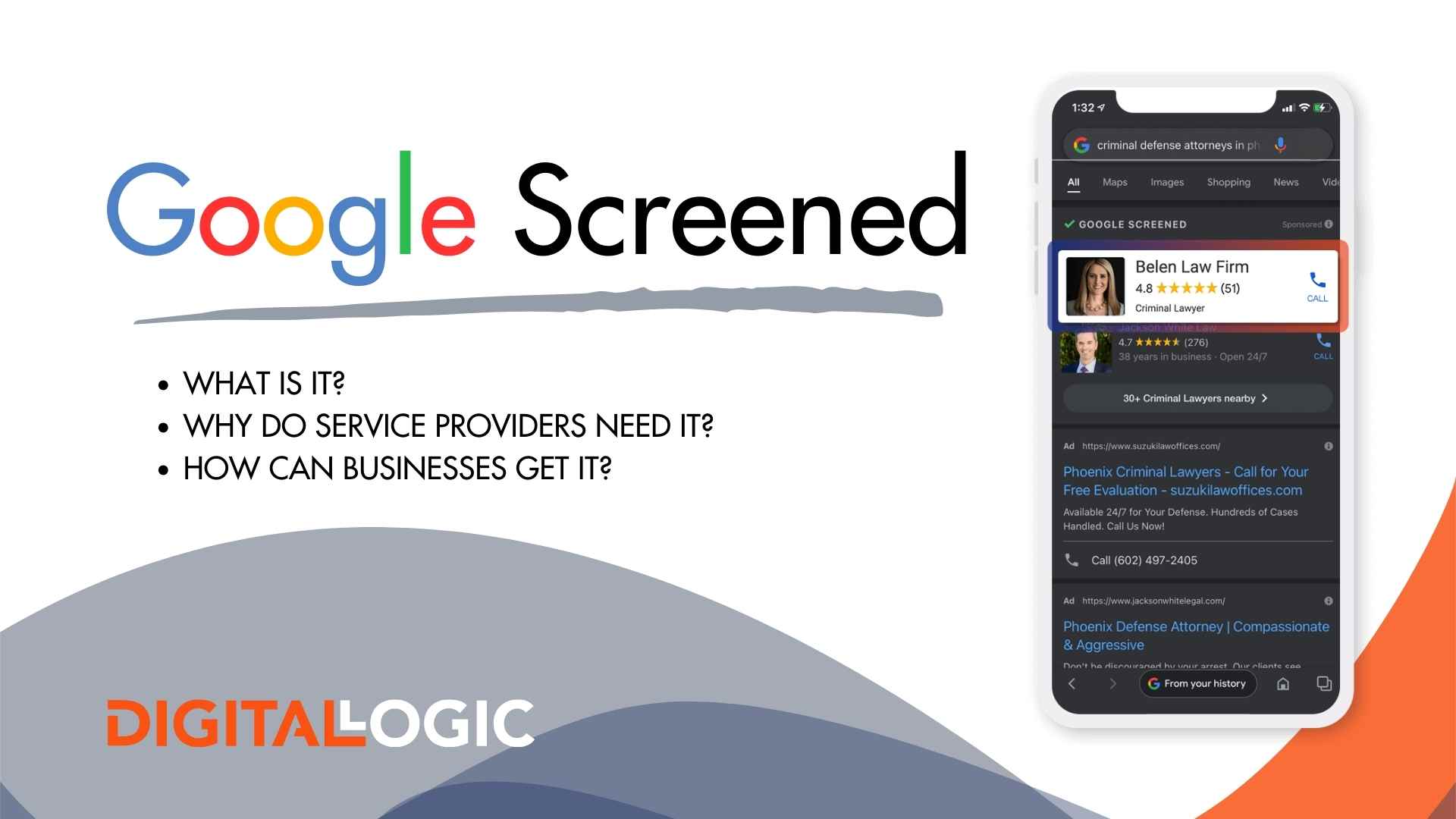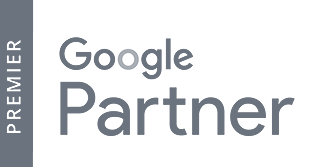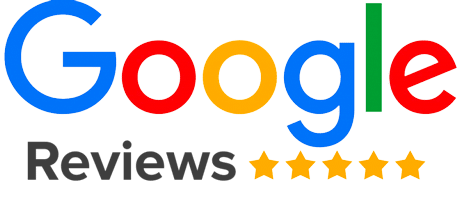Search engine advertising, also referred to as search advertising, online search advertising, PPC marketing, or internet search advertising, is a form of marketing that allows you to display your ads on a search platform, such as Google or Bing.
While search engine optimization (SEO) works to improve the visibility of your website based on keyword searches, search engine advertising allows you to directly insert your paid advertisement into the search results.
Businesses who use search engine advertising are bidding, behind the scenes, on keywords that their target audience is typically searching for.
Search engines allow you to pay for your keyword search position by placing the advertisement above, beneath, or next to the search results.
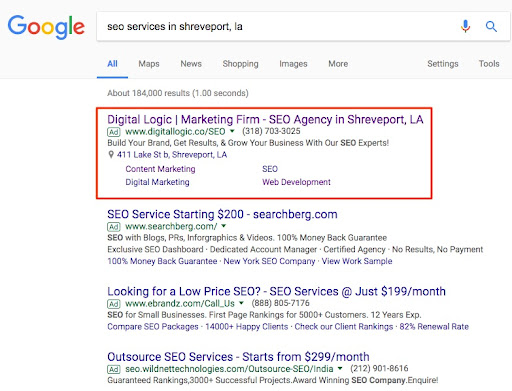
What is SEA (Search Engine Advertising)?
Table of Contents
ToggleSearch engine advertising, like any other form of online marketing, should be part of a complete marketing plan or marketing strategy and not simply used by itself in order to drive business.
This specific form of advertising shows ads to an audience who is searching for a specific keyword set in place by the business or marketer “running the Google ads.”
These Google ads will typically show up either above, on the right-hand side of, or below the organic search results for the inquiry selected. The typical ad campaigns will include three things: a headline, a display URL, and a description.
Sometimes, text-based ads will also include ad extensions.
A few of these include:
You can link to different pages on your site that are relevant to the search term and ad group.
You can display your phone number in the ad. The visibility on phone call extensions is different if you’re on a mobile or desktop view.
You can source local reviews you’ve received, and these snippets will show in your paid ad.
These showcase a particular product or service out of the main body of the ad and site-link extension.
This extension lets you show the address of the physical location of your business.
This extension will allow you to display a button for people to send you a text message.
All four of these pieces need to work together in order to gain the most user clicks possible, and adding ad extensions is an excellent way to use your one ad in multiple ways.
Why Should Businesses Market on Search Engines?
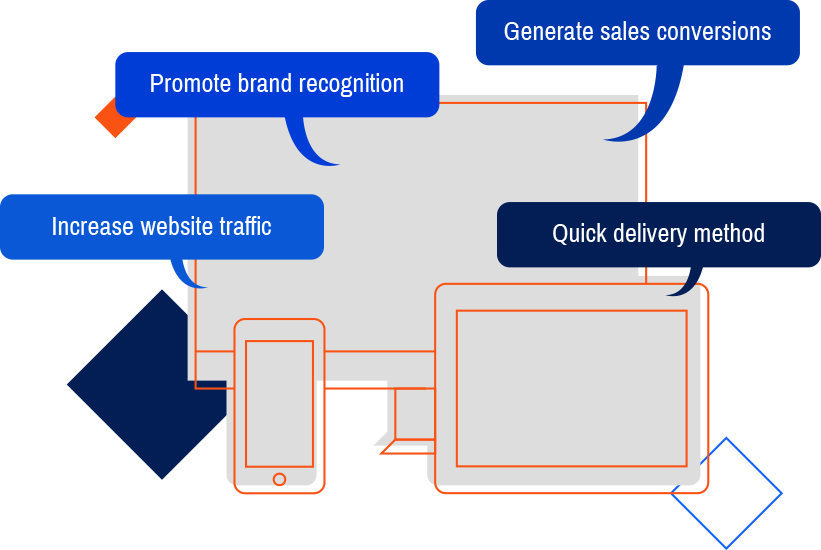
Search advertising offers more growth opportunities at a much quicker speed, which can ultimately give you a competitive advantage. The location, products, and advertising budget will be the largest factors in determining the success of a paid search campaign. Smaller companies should be mindful to only use search engine advertising when they will be able to generate a profit or learn something valuable that can help drive sales in other areas.
Search advertising for small businesses is what drives most online marketing campaigns. Every day there are over 5 Billion searches done on Google, and the number is growing every day.
SEO efforts, or search engine optimization services, work to improve the visibility of your website in the free listings of Google or other search engines, based on relevant keyword searches.
In contrast, search advertising allows you to insert your paid advertisement into the search results on Google and Bing using Google Ads (formerly called Google AdWords) or Bing Ads. Ad fees for pay-per-click advertising are based on the regular pay-per-click (PPC) or cost-per-mille (CPM) models.
If you need information on how to calculate CPM, we tackle that in our other blog.
Search engine advertising offers small business owners the opportunity to place their company’s advertisements right where potential customers will be looking for their desired products and services. Paid search will insert advertisements above relevant search queries rather than overload the user with low-quality or confusing information. If the ad copy and landing page closely match the user’s desired search results, the search engine is more likely to serve that advertisement to the visitor.
When used in tandem with local SEO services, search engine advertising services can yield great results.
Advertisers bid on specific keywords. From here, Google AdWords or Bing places the paid ads above, beneath, or right next to the search results.
Google, as a platform itself, is so dominant that most discussions of paid search are usually with respect to Google’s ad services. Even though advertising costs on Google are often greater than other available platforms, Google ads offers an influx of traffic that no other platform can offer. Not even Bing ads come close.
For a more comprehensive guide, check out SEO vs. SEM.
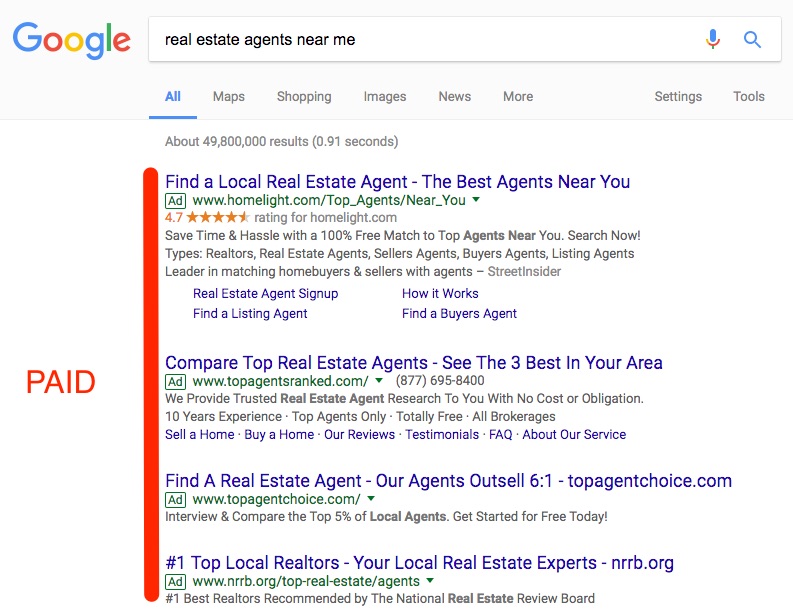
It doesn’t actually cost anything to place an advertisement in the search results for selected keywords. Search engine advertising works either on a cost-per-click (CPC) or cost-per-mille (CPM) basis.
When purchasing ads, advertisers will only incur charges after a user clicks on an ad and redirects to the landing page. However, the frequency of how often an ad is displayed is dependent on the bid and quality score. Bids compare with other advertisers who compete for listings using target keywords.
How Does Google’s Quality Score Work?
Google has a “quality score” as part of its rating system. This is how Google ranks your ad with respect to how well it is able to answer the question or meet the need of the person who used the search term at hand. This stops low-quality ads with higher bids from landing at the top of the search results. This method helps create a positive experience for all users.
Google has studied and implemented a system to understand what makes searchers click on ads. This system earns them increased ad revenues.
A well-planned search engine advertising campaign with high-quality content will always rank higher in search engines.
This is because it’s the most helpful and personalized to the user’s search intent. A high CPC bid is not the only factor in creating a successful advertisement. Google’s quality score rates the following factors as essential for an effective advertising campaign:
- Expected Click-Through Rate (CTR): This metric is based on how often the advertisement displays (impressions), along with the number of clicks that each ad receives. Ads that have a high click-through rate (CTR) are more relevant and shown more often.
- Click-Through Rate For The Display URL: If the URL used in the ad has already achieved a large number of clicks, then an ad’s score will also be higher. The display URL does not have to match the link target to earn clicks to it. But it should at least be related to earning a high score.
- Post-Click Landing Page Quality: Users click on links because they’re featured for their relevance, transparency, and user-friendliness. That ad’s ranking will continue to improve.
- Relevance Of The Ad Copy: Ads that get the top spots on search engines have titles and copy that align with the related search query. The more relevant an ad’s copy is, then the higher the ranking will be.
All search engine ads are evaluated by their CPC bid and quality score. The value of any advertisement can be found with the following equation:
Highest Ranked Ads = Highest CPC Bid x Quality Score
How Does Search Engine Advertising Work?
When the search term contains a common keyword or keyword phrase, there may be several suitable ads to display.
So, what determines the ad rank?
These get rated in order of the relevant keywords searched and are arranged above the organic listing on the display page. All this happens in a split second! Just imagine a little mini-auction for each keyword happening inside Google at all times, even for voice search.
Important criteria for choosing which ads to show boils down to a few simple factors: the CPC bids offered by advertisers and the quality of ads. The quality must be taken into account so the algorithm can create the most useful results for the searchers rather than overload users with low-quality or confusing information from an irrelevant web page.
Since Google’s goal is to offer the best and most personalized user experience, the ad’s rank is based on each user’s search intent. A higher-ranked ad is more likely to display in the top spots during a relevant search.
When using a detailed keyword strategy, search advertising offers small business owners the opportunity to place advertisements on search engines at the exact moment that potential customers are looking for their desired products and services. Search engines want to insert advertisements right above relevant search queries.
The highest-ranking ads are generally the most relevant to the user’s keyword search. This is because the algorithm shows highly targeted ads based on user intent, post-click landing page experience, and targeted keywords.
So, the better your SEO strategies are, regardless of what ad formats you use, the more success you’ll see with PPC advertising.
Search advertising is an effective tool for increasing small business website traffic. The most valuable use of digital advertising for small businesses is to promote your company’s products and services, elevating brand recognition. Most importantly, use it to generate more revenue for your business.
Goals for Google Ads: What Search Engine Ads Can Do For Your Business

When it comes to marketing analytics, marketing metrics, or KPI metrics, we understand that the sheer amount of data thrown at you can be overwhelming.
You can see all the numbers, but if you don’t know what they mean or how they affect your business strategy, they’re only numbers on a screen.
Search engine advertising can be an effective method to increase your small business website traffic, promote your products and services, elevate brand recognition and, most importantly, generate more sales conversions.
The micro goals for PPC services can be broken down into the following:
Phone Calls
For most local businesses, phone calls are the key metric for local search advertising campaigns.
Make sure you have custom tracking numbers set up from your local targeted ads campaign. How will you justify a specific cost per click amount if you don’t know how much traffic these clicks are getting your business?
Website Form Submissions
Most local businesses have online forms on their website, and these days, more people are filling out forms or engaging in online chat. This is a key metric that should be a primary goal to raise. Track them using Google Analytics and your online reporting profile.
Increase Website Traffic
The main goal of search advertising is to direct a stream of visitors to a website. In a fight for the top spot, the ads rank by quality and relevance. But an ad click on the first results page can also be bought with a high bid.
The core objective of search engine advertising is to direct a stream of visitors to a website. SEA, therefore, presents itself first and foremost as a source of traffic for new websites. In a fight for the top spot, ads are ranked by quality and relevance, but their place on the first page results can also be secured through a high bid.
Increase Brand Recognition
Search engine advertising is an effective marketing tool for enhancing a brand’s visibility amongst others in its field. Another goal of a SEA campaign should be to occupy keywords services with advertisements for your own product lines or services.
Generate Sales Conversions
Search engine advertising pays off when it contributes to gaining leads or to the increased sale of products and services. Advertising programs like Google Ads make it possible for website owners to determine exactly how often search engine ads lead to conversions. It helps you track when a potential customer becomes a customer.
Deliver Messages Quickly
Like “boosting” or running promotions in social media marketing, you’ll find that search engine advertising is a lot more effective at quickly generating sales than search engine optimization efforts. While SEO is primarily a long-term digital marketing strategy, paid search advertising helps to find profitable keywords for your brand.
How Much Should I Spend On SEM Campaigns?

We’re often asked, “How much does search advertising cost?” and honestly, that is a reasonable question that we get from almost every customer. Unfortunately, we’ll tell you as we tell them because there isn’t a one size fits all equation, “it depends.”
The amount you should spend on organic search optimization and paid advertising should be based on your long-term customer value (LTCV) and short-term customer value (STCV).
Base this on your target cost per customer acquisition or cost per sale.
Monthly Budget for Search Engine Advertising
To determine your daily and monthly budget, Google offers budget and website traffic monitoring tools. They focus on the keywords you want to target as well as the geographic areas you want to target. These tools will give you a general idea of how much search inventory there is for you to buy based on high user intent. It also shows what your possible budget should start out with.
Here are a few takeaways we’ve learned when it comes to Google search engine advertising budgets:
- Search ads are based on an auction system. Normally you’re going to pay more for words that typically bring more value. You’re going to pay more for a steak keyword than you would a chop beef keyword.
- You can control how much you spend and exactly where the money is spent. The more you target your audience, the less money you’ll waste and the more opportunity you’ll have for conversions.
- The average spend of a small business on search engine advertising per month is anywhere from 5,000-10,000, depending on the industry.
Who Should Use Search Engine Advertising?

A successful search engine advertising campaign does not depend on the size of the business. Businesses with a larger budget for paid search can explore more growth opportunities faster. This will, of course, provide them with a competitive advantage.
The location, products, and advertising budget are the big factors that determine the success of a paid search campaign. Smaller companies should only use search engine advertising when they are sure they will generate a profit from it. Some experiments can teach valuable lessons that help drive sales in other areas.
Small business owners who invest in search marketing campaigns should think about how much their search engine marketing strategy will help gain new clients. From here, they’ll need to be as specific as possible when creating ad campaigns.
For example, a local personal injury law firm might use the keywords “personal injury lawyer in city name” or “injury attorney near me.” These paid search campaigns will receive clicks from searchers who aren’t shopping by other specifics or niches. As long as the searcher’s post-click landing experience is good, the lawyer should have no problem converting the searcher.
Businesses of every size should also consider SEO as part of their long-term growth strategy, as well. Since advertising with search engines should aim to generate leads, it’s ideal to first target and answer specific search queries.
Your customers will be more likely to buy from your company if they are able to find valuable content also readily available on your website. If you want to jump ahead of the learning curve, then hire a company experienced in PPC management services that can demonstrate previous success.
Internet users will still favor the organic results of their web search on Google and Bing. According to SearchEngineWatch, only 6% of internet users are likely to click on paid search ads.
Search engine advertising can’t be a substitute for a natural ranking system.
Like we say for every single form of marketing we talk about, this is why businesses should use paid search to be only one aspect of their digital marketing strategy.
We provide more information on how to improve your SEO priority in our other blog posts.
Search engine advertising is helpful for generating traffic using common keywords. This is especially true when the market is over-saturated with competition in the organic search results, as that makes it difficult to rank. Search engine advertising is also a great strategy to employ when there are short-term events, such as sales and offers, that could use instant exposure.
Localized Ad Copy & Extensions
The more niche your company, product, or service is, the less expensive it will be to advertise using search engine advertising. With that being said, you will face competition regardless, and you will likely see national companies buying ads on search engines.
For both cases to counteract this, make sure that you include geographic terms in your text ads. You can also use location extensions so potential searchers know you’re actually a local business.
More common or competitive industries may experience a larger cost-per-click over main keywords. You can also advertise cheaper if you set up your campaigns aligned to long-tail search terms. Seek lower search volumes in a “low-hanging fruit first” strategy.
There are several tactics we employ at Digital Logic to drop the costs your business pays for and raise the opportunities for conversions for our clients.
The list literally continues to grow with each new client. You can actually teach an old dog new tricks!
This is an example of a few extensions for our business for the localized campaigns we’re running:
Primary Targeting Options for Local Search Engine Advertising
Ads displayed in the search engine results pages (SERPs) match with keyword searches. If a user is searching for the keyword “attorney,” they will find a few ads that focus on law firms or attorneys. There are some other factors you’ll want to consider when using displaying advertising. These features are also likely to increase or decrease an advertiser’s bid price. The most important targeting factors include the following:
Location
Advertisements will cost more or less depending on which country, state, or city they’re shown to. A small business owner can offer more for their ad campaigns if they want the ads to appear more often. Ads are more visible in searches within the geographic location the searcher is in. Geofencing or Location Targeting options can include a city, state, zip code, and radius. It could be miles around a physical location or even a kilometer around a physical location. You’ll also want to pay attention to the location exclusions so you don’t get out-of-area traffic. Read our comprehensive post on Geofencing and location targeting.
Daily & Weekly Hours
Google can display search ads more or less often, on certain days, or at certain times of the day or night, depending on your preferences. This will influence an advertiser’s bidding behavior. Allocating your budget toward the best buying times for your customers will keep your ads performing well.
Language
Google takes the searcher’s language into account. Only displays ads in the local language are shown to each user. You should create advertisements for each language based on your potential customers. Or limit your ad exposure to only certain languages.
Remarketing Lists
Ads display for users depending on what they viewed in the past. This means that a user has visited your site already. They will have a different display experience compared to a user who’s never visited the site. They might be shown things that could influence a visitor to buy or act in a different way.
Google Phone Call Only Campaigns
With phone call-only campaigns, advertisements are set to run on mobile devices only. A bid price will be set to the max cost per call that the user is willing to pay. These campaigns bypass having to click through to a website. They direct users to make a phone call from the advertisement on the results page. The highest cost-per-call setting is like the max CPC setting. The cost-per-call will be higher than the max CPC setting. That’s because the value of a phone call is higher than the value of a website click.
Finding the Right Keywords to Bid On
Keywords are the foundation of search engine marketing. Users enter keywords (as part of search queries) into search engines to find what they’re looking for. It should come as no surprise that keywords form the basis of search engine marketing.
SEM Keywords
First, you’ll need to identify specific keywords that are most relevant to your business. Include the ones that prospective customers are most likely to use when searching for products and services that you provide. One of the best ways to perform keyword research is by using Google AdWords’ Keyword Planner. Enter a keyword that’s relevant to your products or services.
Then you’ll see related keyword suggestion ideas. Those can form the basis of various search engine advertising campaigns.
You want to also make sure that when you’re bidding on keywords, you’re bidding on keywords that are intent-driven.
You want the audience who are posing these questions to be at the right stage in their buyer’s journey to want to click your ad and be ready to purchase. The more you know about how your target audience behaves, the more your ads will be able to help you convert your audience.
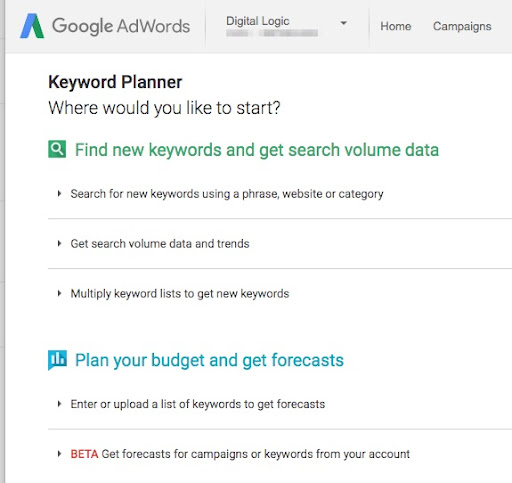
SEM Negative Keywords
When you’re searching for keywords that your company can bid on, thorough research can also help you identify what is known as negative keywords. Or locate search terms that you should exclude from your ad campaigns.
Negative keywords are irrelevant terms that are unlikely to result in conversions. You’ll want to include some of these to protect your budget from wasteful expenses.
If your business sells ice cream, then you would want to exclude the keyword “recipes.” Users who are searching for “ice cream recipes” are not likely to want to buy ice cream from your business.
SEM Keyword Groups
Practical keyword groups and account structure can help you achieve higher click-through rates (CTR), and lower cost-per-click (CPC). This usually results in a stronger performance. Keyword research can help you think about how to best structure your advertising account to achieve high performance.
Rotate Ad Groups
Your search engine advertising campaigns should focus on similar products or services. Use different ads and keywords for each specific category of products or services within your company’s wider offerings.
If you own a hardware store, one ad campaign might focus on seasonal products such as leaf blowers, rakes, and lawnmowers. Another search campaign could focus on industrial-use power tools.
Ad groups subcategorize each campaign for high or “niche” relevance. In the hardware store example, one ad group might be for different types of rakes or models of leaf blowers. For power tools, one ad group could focus on power drills, while yet another might focus on circular saws. This level of advanced organization will take longer to set up in the beginning.
The rewards, like higher CTR at a lower cost, make this effort worthwhile in the long run.
Tracking And Measurement For Search Engine Advertising Campaigns
You’ll want to set up a Google Analytics account. Then set up a call reporting tool like Call Rail. Now, you can receive specific metrics on-demand related to your local search campaigns:
Or, you can use a custom reporting platform like the one our agency sets up for our search engine advertising clients:
Search Engine Advertising Agency
To better provide you with professional digital marketing help on your local search engine advertising campaigns, Digital Logic maintains a Google Partner status. Our PPC consultants will be happy to give you a free quote along with a free initial consultation. We are a full-service marketing agency that offers an array of digital marketing services.


